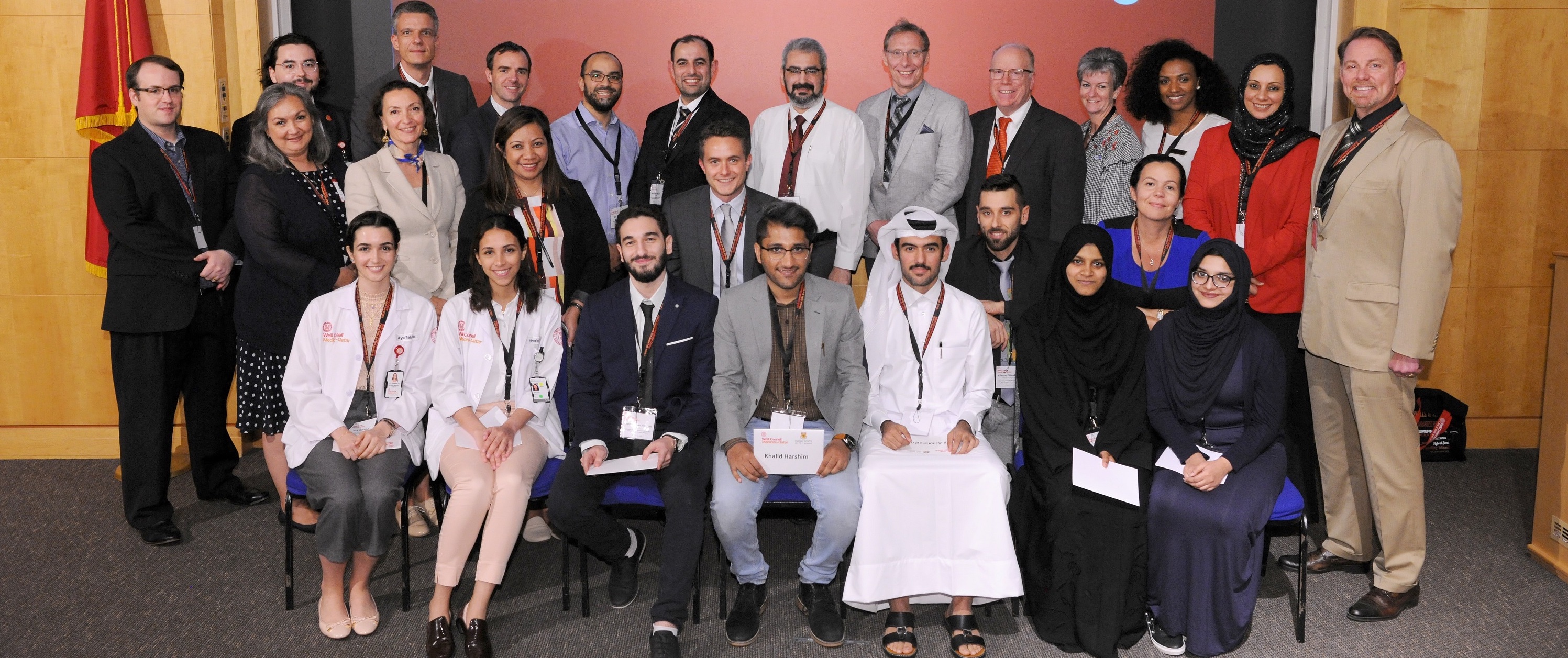WCM-Q symposium discusses simulation-based learning in medicine
 Representatives from institutions across Qatar attended the event.
Representatives from institutions across Qatar attended the event.
Health professions educators, clinicians, students and technical specialists from institutions across Qatar convened at Weill Cornell Medicine-Qatar (WCM-Q) for a one-day symposium on simulation-based learning.
Simulation-based learning in the medical field uses a variety of teaching aids and techniques to recreate a range of clinical experiences. These are designed to give trainee health professionals opportunities to learn the importance of human factors such as effective communication, leadership and teamwork when caring for patients, in addition to offering teaching aids which support learned mastery of clinical and communication skills, in a safe and controlled environment.
The one-day symposium, hosted and coordinated by the WCM-Q Clinical Skills and Simulation Lab (CSSL) team, offered a series of six practical workshops, a lecture on life-long learning that emphasized the role of debriefing, and two panel presentations in which the presenters discussed the current state of simulation-based education in Qatar. The symposium also unveiled its new ‘Sim Souq’, a networking platform designed to provide opportunities for health professions educators to meet, share and develop innovative ideas, and hatch collaborative endeavors.
The annual event, now in its second year, brought together more than 100 attendees and speakers from WCM-Q, Hamad Medical Corporation, Sidra Medicine, College of the North Atlantic – Qatar, Qatar University’s College of Medicine and College of Pharmacy, and the University of Calgary in Qatar.
Dr. Stella Major, associate professor of family medicine in clinical medicine and symposium course director said: “We are delighted to welcome a wide range of highly skilled professionals who are here today to learn more about how to optimize health professions teaching using standards of best practice in simulation-based education, and to share their insights on this important and exciting field of medical education.”
The symposium featured keynote speaker Dr. Ralf Krage, an anesthesiologist at VU University Medical Center in Amsterdam, Netherlands, director of the ADAM Simulation Center, and vice president of the Dutch Society for Simulation in Healthcare, who gave a presentation on the challenges and opportunities presented by life-long learning.
The event’s six workshops addressed the advocacy-inquiry debriefing model; training human role-players in health professions education; assessment measures for evaluating high-performing teams; integrating simulation into a curriculum; contrasts between different simulation modalities and tools; and assessment strategies in simulation-based learning.
The event also featured a session in which health professions trainees in Qatar discussed their experiences of simulation-based learning and gave feedback and recommendations on how health professions educators can make simulation-based learning more effective.
Entitled ‘Optimizing Health Professions Education with Simulation-Based Learning’, the event was accredited locally by the Qatar Council for Healthcare Practitioners-Accreditation Department (QCHP-AD) and internationally by the Accreditation Council for Continuing Medical Education (ACCME).